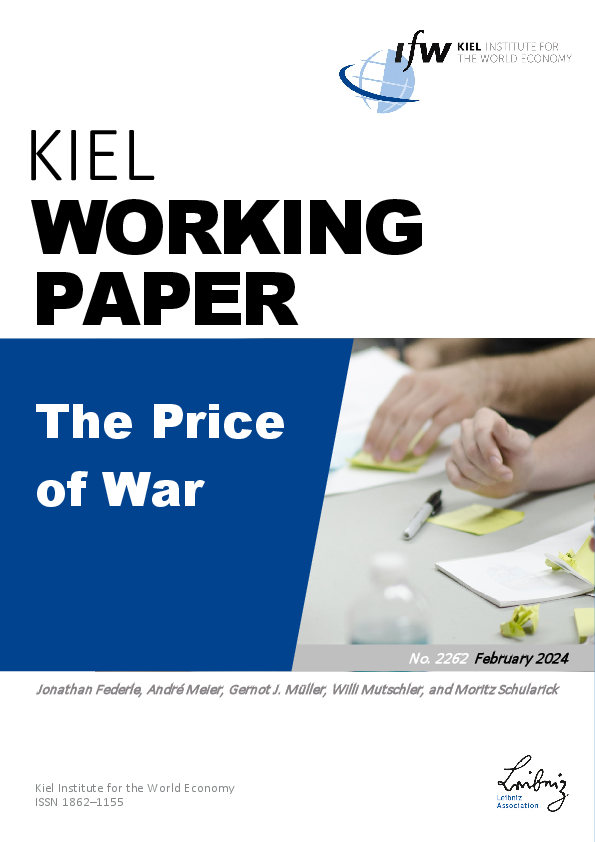Autoren
Erscheinungsdatum
Schlagworte
Ukraine
Krieg
Geoökonomie
Konjunktur Welt
Internationaler Handel
In an integrated global economy, the economic fallout of war is not confined to the country where the conflict is fought but spills over to other countries. We study the economic effects of large interstate wars using a new data set spanning 150 years of data for more than 60 countries. War on a country’s territory typically leads to an output decline of 30 percent and a 15 percentage point increase in inflation. We find large negative effects also for countries that are geographically close to the war site, irrespective of their participation in the war. Output in neighboring countries falls by more than 10 percent over 5 years, and inflation rises by 5 percentage points on average. Negative spillovers decline with geographic distance and increase in the degree of trade integration with the war site. For very distant countries, output spillovers can turn positive so that wars create winners and losers in the international economy. We rationalize these findings in an international business cycle model, calibrated to capture key features of the data. As the war destroys capital in the war site and productivity falls, trade with nearby economies decreases, generating an endogenous supply-side contraction abroad.








